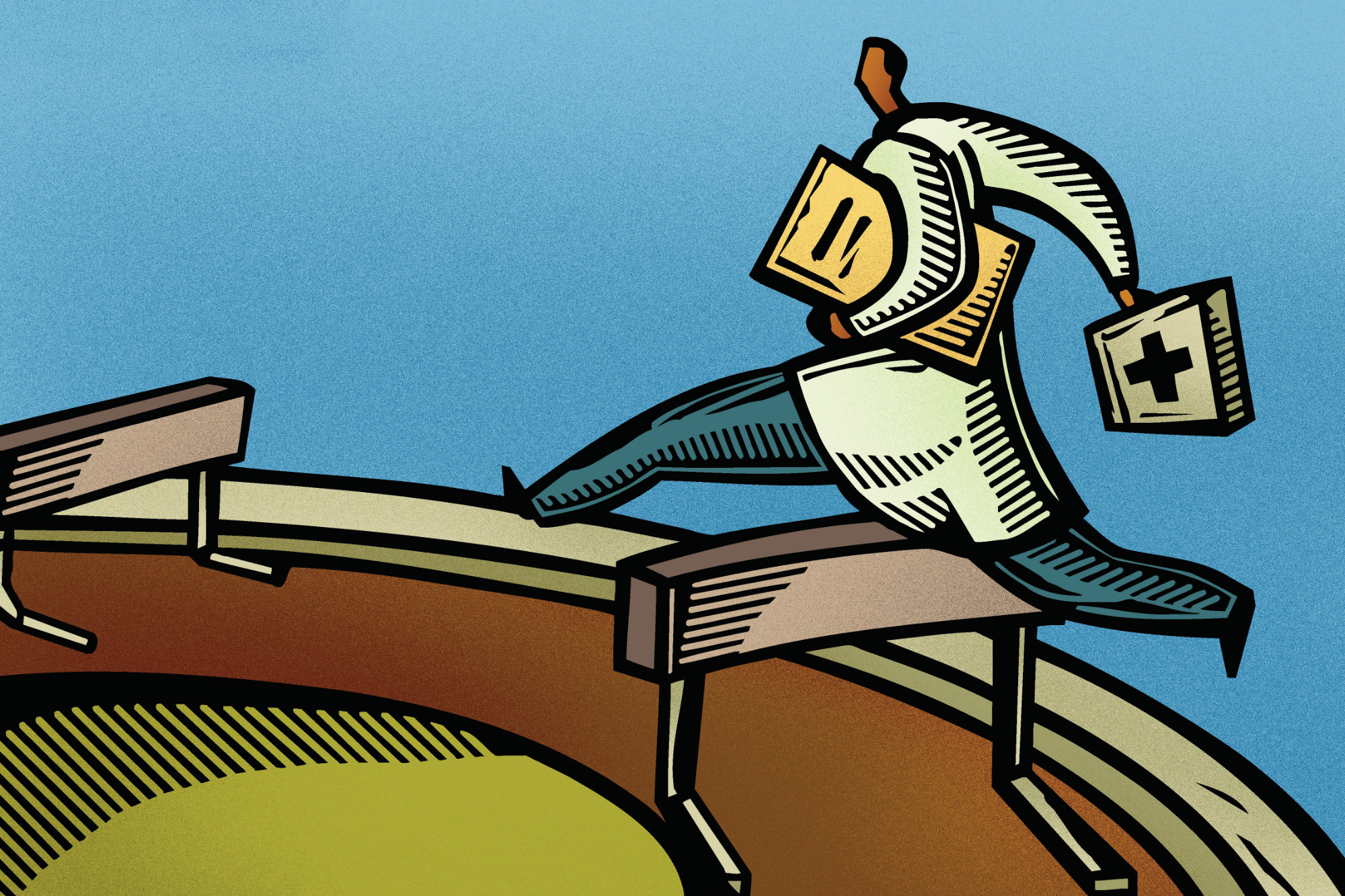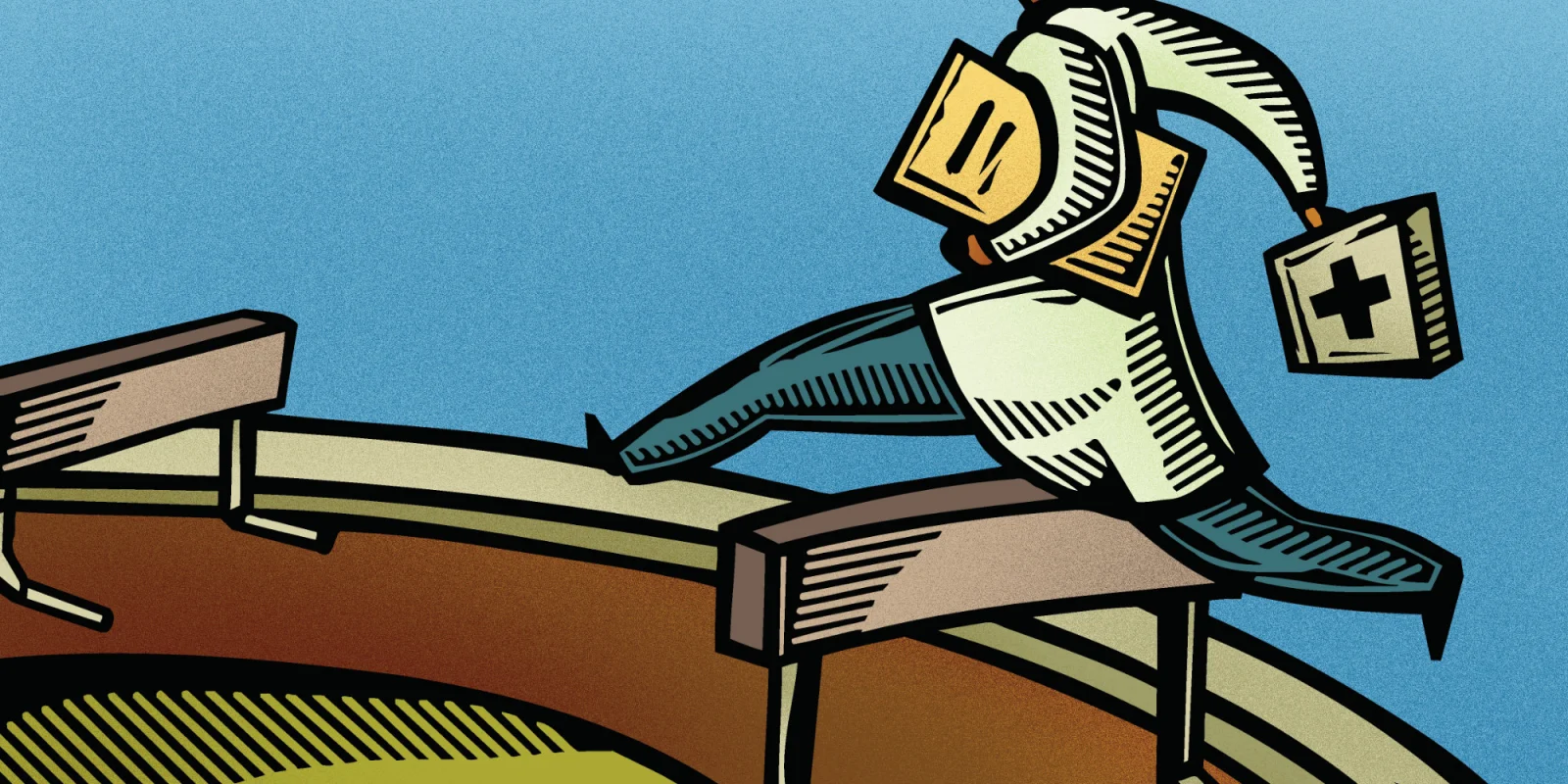
A recent conversation in a group chat amongst my former residency colleagues and I had sparked an hour-long divulgence down memory lane.
Recalling our first code blues, or cases that baffled us as well as moments that made us cry, we recognized how far we had come since the days of being wide-eyed interns.
After each of us had updated the others on our current lives — a conversation filled with wedding and baby announcements — each person described what they had learned about themselves and the field of medicine within the four years since graduation.
Some were honest and said attending life was not what they had expected it to be. They wished our senior physicians had warned us on the nuances of charting and billing, patient satisfaction measures, and convincing insurance companies to pay for treatments. Others loved being done with training and the new freedom an attending salary now afforded them.
As I looked back on my own career journey since graduation, I'm realizing that my current path is one I would had never fantasized about before exposure to it. Like most residents not going into fellowship, I anticipated signing a contract and working at one place for the next several years. Never would I have imagined that less than five years from graduation, I would be an independent contractor working as a locum’s physician.
Gaining career independence and recognizing that I am a business of myself has by far been the greatest lesson thus far. Learning that entrepreneurship within medicine is possible and can lead to greater work-life balance has been the most rewarding part of graduating residency and moving forward in my career.
Here are my other top lessons learned during residency.
Bloom in the Garden in Which You Are Planted
Make it a point to bring your A-game and be the best possible physician regardless of your work environment. Sometimes, you may be in a position which is not ideal for you or at a work facility that does not fit your needs. Despite that, make it a point to make your patients a priority and to be cordial to everyone, as doing so will go a long way later down the road. Remember that reputations are built early.
Honor Friendships Inside and Outside of the Workplace
Long work hours don’t end after medical school or residency. This should not be an excuse to forego relationships, especially with those who have been supporting you throughout your medical career. Make a conscious effort to get reacquainted with love ones. Also recognize that coworkers can quickly become friends and even family. You do not have to have them over for dinner every night, but creating real and lasting bonds with the people you spend most of your day with may actually be a blessing in disguise. Always remember that you are not alone regardless of your chosen path in medicine.
Everyone’s Financial Story is Different
There is a rule floating around physician finance websites that you should be able to pay off your student loans within five to 10 years of graduating residency. Apparently, living like a resident even after residency ends will afford you the ability to pay off the massive debt you have accrued over the years. While that may be true for some it is not the story for everyone.
Life’s big challenges like a growing family, moving across country, aging parents, etc. can be roadblocks to paying off debt. However, do not get bogged down by how long it takes or if you aren’t done within a certain timeline. Remember to do the best that you can and eventually you will pay it off.
Don't Forget Who You Are
Spend time to develop yourself outside of medicine. Learn a new hobby, develop personal skills, engage in activities you enjoy, and spend time appreciating life. Always remember the simple things and passions that make you happy.
Recognize Burnout
Burnout comes in various forms and can have a wide array of presentations. Take a conscious effort to recognize when work is becoming an emotional, physical, or mental strain (especially if the work causes all of the above). Don't be afraid to seek help; remember that getting the help you need will be beneficial for both you and your patients in the long run.
Be Gratuitous
No matter where you find yourself years after residency, remember that you were strong enough to complete several years of studying and clinical learning. You have accomplished something that many can only dream of and several others are still trying to achieve.
Transitioning from a resident physician to an attending is as much a clinical learning curve as it is a personal one. However, we must face these challenges head-on, even welcoming them, since these lessons will shape us into the physician and health care providers we are meant to become.
Akua Ampadu, MD is a hospitalist physician who is passionate about quality inpatient and outpatient adult care. As a survivor of work- and life-related burnout, she aims to provide tools necessary to live a life focused on self-care and self-advocacy. She also recognizes the importance of reading to one’s health and in 2016 launched the Healing Words Foundation, a literacy-based charity focused on providing books to pediatric wards and outpatient clinics. She is active on social media. She is a 2018–2019 Doximity Author.







